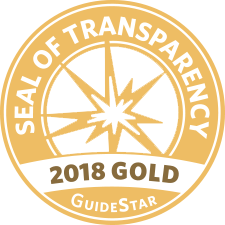About Death Dinners
Most people fear the conversation of death. As a result, more than 60% of adults do not have advanced directives for end-of-life care if they become seriously ill or unable to make healthcare decisions. However, we can overcome that statistic. Project 4031’s Death Dinner is designed to eliminate the fear and stigma of talking about death and focus on past experiences and personal goals for ending life well for yourself, or a loved one. Instead of facing end-of-life challenges, we can start the conversation about death now and prepare to end life well.
At Project 4031, we have a passion for ending life well. Our hope is to help each person we serve to achieve this goal. Since our foundation, our organization has been starting the conversation about end of life by asking the following:
Why do people wait until the very end? Why are we not being more proactive? Why not speak to this more in-depth and provide the time for an individual to take into consideration what ending life well looks like for them?
This year we finally took the leap to start “Death Dinners.” The concept is based on the book called Let’s Talk about Death over Dinner by Michael Hebb.
Why Start the Conversation?
- 92% of people say that talking with their loved ones about end-of-life care is essential
- Only 32% have actually done so
- 53% say they’d be relieved if a loved one started the conversation
- 95% say they were willing or want to talk about their end-of-life wishes
What Are Death Dinners?
The concept is simple. The dinner is hosted by one or two individuals that invite their friends, family, and acquaintances to join. By all having a mutual connection, it allows everyone to feel comfortable in the environment. The setting is intimate; usually sitting around a dinner table, in a living room, etc. Then the conversation begins:
What does death look like for you? What does ending life well look like for you? Where do you want to be? How do you want people to remember you? What does your life celebration look like? What is your legacy? Where do you want your remains to be?
How do you feel? How are your loved ones feeling? Do they know what your expectations are during and after the end of your life? How do you want to be remembered?
These are tough questions and death is certainly not a glamorous topic, but the goal is to make it about ending life well. How do you feel? How are your loved ones feeling? Do they know what your expectations are during and after the end of your life? How do you want to be remembered?
The IMPACT
I know this conversation personally. My grandmother had everything for end-of-life planned out and as a family, we knew what her desires were. Together, we were able to act on her wishes for her. The peace, joy, and comfort knowing what she wanted and honoring her life through the end were incredible.
I pray and hope this for myself, my family, friends, and each one of you. If we are bold enough to start these difficult conversations and lead conversations to difficult topics, the long term and positive outcomes are endless. Just think of what a healthier community, both mentally and emotionally, we could be knowing we ended life as well as we lived it.
I am excited to say we had our first Death Dinner this past January. Not knowing what to expect, we approached the evening with a plan, set the format, but were purposefully flexible to allow free flow of conversation. What happened was beautiful. Each guest was open to speaking about their life, family, and expectations. A topic that came to the forefront of conversation was, “How I want to be remembered and how do I want to live.” Peace, joy, love, and compassion came to my mind for each of the attendants, which are of utmost importance to pass on to future generations. It was awesome!
Ellerbe Fine Foods graciously donated an incredible dinner for the ten guests and one of our lovely board members and their spouse, Brandon and Marie Chase opened their home to host. Thank you to our partners who made this evening successful and setting the bar high for the many more to come. This initial event was the first stone thrown, beginning the ripple effect for a new way to talk about ending life well.
Putting the conversation of death off until the end is often more emotional and stressful for those involved. Our prayer is that our mission is heard and that people begin addressing the topic of death sooner. The individuals we are serving and the impact we are making in our community continue to grow, and we couldn’t be more excited.
If you feel lead to host one of these events or support our mission, please contact us by calling 817.653.8976 or emailing info@project4031.org.
Additional Resources
Learn More:
- From the Sandford School of Medicine Studies have shown that approximately 80% of Americans would prefer to die at home, if possible. Despite this, 60% of Americans die in acute care hospitals, 20% in nursing homes, and only 20% at home.
- According to a survey (Steinhauser 2000) of more than 1,400 patients “End-of-life care professionals and family members revealed their most important goals include being treated as a “Whole Person.”
Hear More:
Visit your favorite podcast app or website and search:
The Map of Everything Podcast: Episode 3 Being a Death Doula, Natural Burial & Our Relationship with Death w/ John Christian Phifer
Read More:
https://finance.yahoo.com/news/4-secrets-raising-wealthy-kids-143200914.html
Contact Us
708 May Street, Fort Worth, Texas, 76104
info[at]project4031.org
Phone: (817) 653-8976
Fax: (817) 841-8250
Follow Us
Site design by Teleos Marketing.




